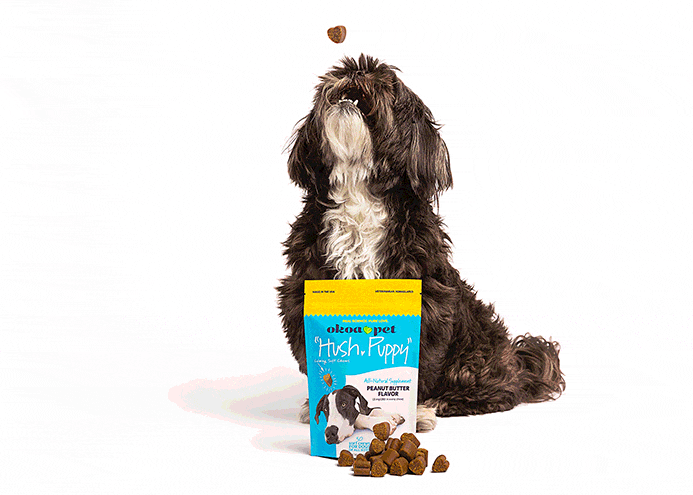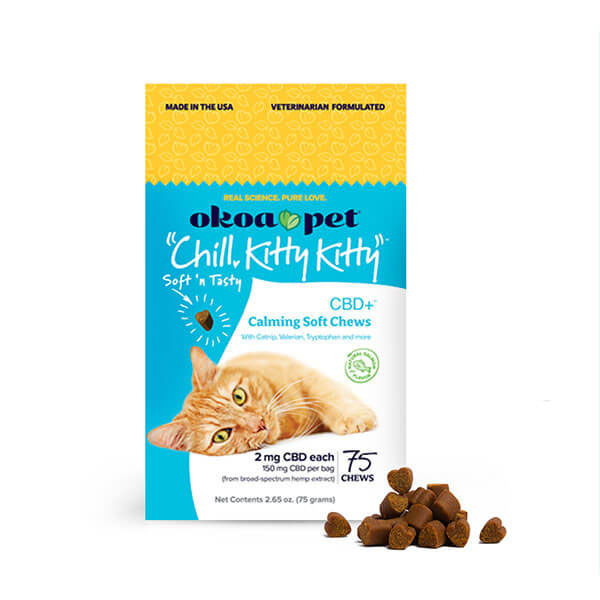Anxiety in Pets – What Pet Parents Should Know
All pets, even the most laid-back Labs and relaxed Ragdoll cats, experience anxiety occasionally.
But what if your pet always seems anxious? What if normal activities, like walking around the block or a routine vet visit, have become difficult, frustrating, and distressing for you and your pet?
Anxiety in pets is incredibly common and can manifest in many ways. One manifestation is separation anxiety when your pet can’t cope with being left alone. Others include being on edge around other pets or feeling terrified whenever you have a house guest.
How Anxiety Affects Pets
Having a pet with anxiety can be stressful for you, too. Your pet’s anxiety can prevent you from having a friendly, outgoing relationship with each other. It can also become an inconvenience if, for example, leaving the house becomes a ten-step process.
But it’s more than just an inconvenience. Every time your pet gets anxious, their heart rate and respiration accelerate.
Your pet’s endocrine system produces hormones like adrenaline and cortisol, which help them respond to a perceived emergency. However, when they experience this response over and over, it can have long-term effects on their health. Some effects include weight gain, a weakened immune system, and poor digestion.
Common Misconceptions About Anxiety in Pets
One of the biggest misconceptions about pet anxiety is that there’s no quick fix. Natural, holistic treatments, conventional medications, and behavioral therapy are all potential solutions. However, you must use them consistently and may need to use them in conjunction.
Beware of trainers who advertise “quick fixes”. They may involve intimidating or scary punishments like e-collars, noisemakers (like a loud can of pennies), and even mouse traps.
While punishments may mask symptoms of anxiety, it can manifest in other ways. For example, if you punish your dog for barking at children, they may stop, but it won’t help them feel safer around them. If your pet doesn’t feel safe, she may snap or bite if they still feel anxious.
Also, it’s perfectly fine, actually essential, to comfort and soothe your pet when they’re anxious. It is impossible to reinforce anxiety as you would an unwanted behavior. Comforting your pet will help them when they’re scared. You’ll teach them to trust you to help them feel calm. So, give your pet some love when they’re feeling anxious. Talk to them softly and let them know they’re safe.
Managing Anxiety in Pets
While anxiety in pets is treatable, it will take time to help your pet feel better about their triggers, regardless of your treatment or treatments. In the meantime, you must limit your pet’s exposure to triggers. This ensures they won’t continue to have scary experiences that build upon their negative associations with the trigger.
If you have not already, you must determine what is making your pet experience anxiety. It’s not enough to note that your pet has separation anxiety or that they become reactive on walks. What exactly bothers your pet about being alone while you’re at work? Are they constantly over-aroused by strangers who walk by the windows of your home? Do they have trouble settling down and napping while you’re away? Instead, Do they exhibit nervous energy outbursts that drive them to destroy your belongings? You may find setting up a camera to record their behaviors while out helpful. That way, you can see what happens when you’re not home.
Creating a home environment where your pet feels safe will help greatly. This can mean providing a quiet place to retreat when they’re anxious. You may cover up windows with curtains or clings so they don’t see strangers passing by all day. You can even play music to help drown out sounds that bother them.
My Pet Has Anxiety… What Are My Options?
You can use many options to relieve your pet’s anxiety so they can live an enjoyable life. With treatment, they can one day happily participate in activities that they find stressful. However, it’s important that you are patient and your expectations are reasonable.
Many of these options can be used together. However, it’s best to introduce them one at a time so you can see what is the most effective and rule out what might not work so well for your pet’s unique needs.
Calming Supplements For Pets
Calming supplements can help calm your pet, whether you toss your pup their favorite calming treat before you leave for work every morning or give your cat a few CBD chews when you have guests over.
Many pet parents turn to CBD supplements to help their pets relax.
“Holistic veterinarian Dr Rob Silver, an expert in animals and cannabinoids, formulates Hush, Puppy” CBD+ calming treats from Okoa Pet. They combine the power of broad-spectrum hemp extract and other proven, calming ingredients, including chamomile, tryptophan, and choline. These ingredients work together to help comfort your pooch and ease feelings of stress.
See how “Hush, Puppy” CBD calming treats can help your pet find inner peace – shop our holistic, vet-approved calming supplements!
Essential Oils
Essential oils are plant extracts that can have health benefits when consumed, inhaled, or applied to the skin. Many of these oils have been used for medicinal purposes for hundreds, even thousands of years. They have only recently shown potential benefits in human and animal research studies.
Though these oils are naturally derived, they vary widely in their effects on people and animals. Some oils, like peppermint, can make animals more active and awake, while chamomile and passionflower are calming.
Take care when using essential oils with pets, especially if using products designed for humans. Some oils are toxic to animals, while others must be used in very small concentrations to avoid side effects.
If you’re considering essential oils for your pets, it’s best to use a product developed by a licensed veterinarian for pets.
Music Therapy
Like humans, pets can experience mood changes when listening to music. Songs have even been composed specially for cats and dogs to help them relax. Calming pet music uses soothing, high-pitched notes that appeal to our pets’ heightened hearing ranges. Studies suggest that some made-for-human music genres are more soothing than others. Soft rock and reggae demonstrate exceptional soothing qualities in dogs.
Tellington Touch (TTouch)
The Tellington Touch Method, or TTouch, developed by animal expert Linda Tellington Jones, is a methodology using touch at strategic pressure points. The method may help pets recover from injuries and experience reduced stress and anxiety while nurturing the human-animal bond.
Behavior Therapy
You can use training, games, and fun rewards to change your dog’s feelings about a trigger. Working with a veterinary behaviorist who works with pets with anxiety is helpful. While some dog trainers specialize in force-free behavior modification, the industry is unregulated, so it’s not uncommon for trainers to use techniques that can worsen anxiety. On the other hand, Veterinary behaviorists are veterinarians certified by the American College of Veterinary Behavior. These professionals can suggest routines, training techniques, and medications that foster lasting changes in your pet’s anxiety.
Enrichment
Exercise improves mental health in humans. This has been well-documented. For pets, getting enough exercise is essential to their mental health and can help manage their anxiety. Most pets were originally bred to fulfill high-energy roles like hunting, tracking, and herding. Those jobs provided not only physical exercise but mental stimulation as well. Though you may not be able to take your best buddy out to herd some sheep, you can still stimulate their body and mind through walks, jogs, and enriching tasks like nose work and food puzzles. Enrichment is a good choice for pet and pet-parent anxiety alike!
Medication for Pet Anxiety
Medications like alprazolam (Xanax), Fluoxetine (Reconcile or Prozac), and Paroxetine (Paxil) can be prescribed by your veterinarian for situational anxiety and long-term use. They are often used in conjunction with natural treatments. Let your veterinarian know if you will use any over-the-counter or holistic treatments alongside conventional medications for your pet’s anxiety. This is important so they can assess the potential for any drug interactions.
In summary, as a pet parent, you have many options to help your pet cope with anxiety. At Okoa Pet, we advocate using holistic, natural solutions. We suggest consulting with your veterinarian if your pet doesn’t respond to natural modalities.









